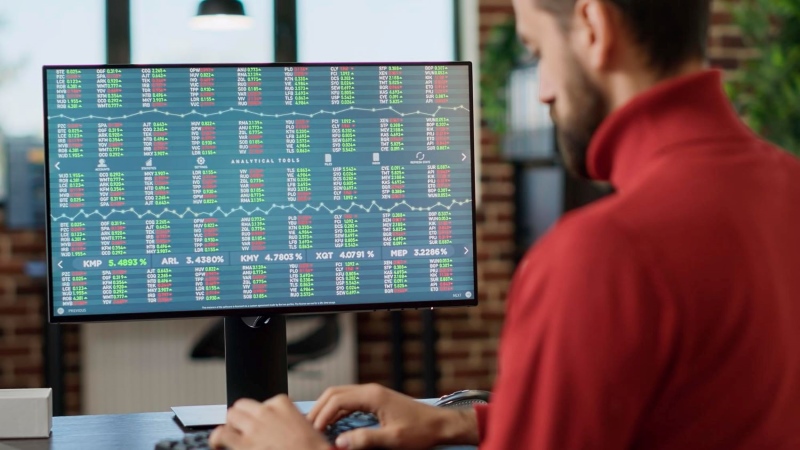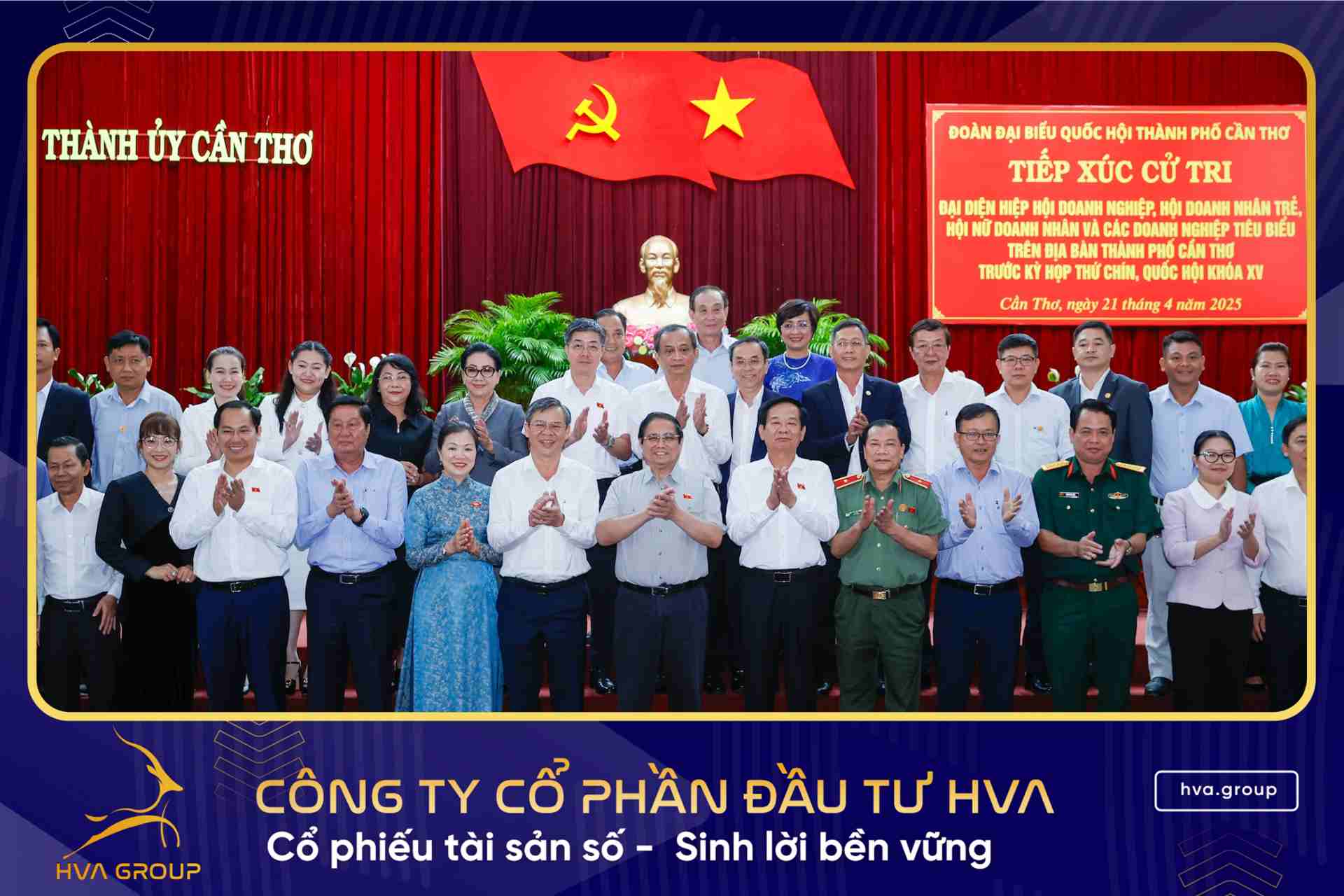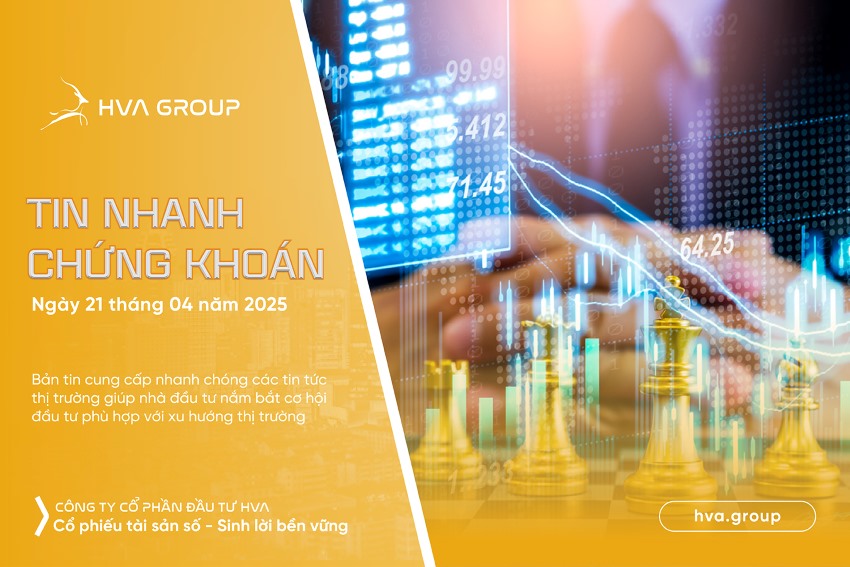Experience in investing in fund certificates most effective 2025. Detailed instructions on how to choose, buy, and optimize profits from open-end funds for beginners.
What is a fund certificate? Why should you care?
Before going into fund certificate investment experience, we need to understand the nature of this type of asset.
- Define: Fund certificate (CCQ) is a type of security that confirms the ownership of a part of the investor's capital contribution in a public fund. A public fund is formed from the capital contributions of many 1 investors, with the aim of making a profit from investing in securities (stocks, bonds) or other assets.
- Mechanism of action: Professional fund management companies will manage the fund's investment portfolio on behalf of investors. They use their knowledge, experience and analytical tools to make decisions on buying/selling assets to maximize profits and control risks. Profits or losses from investment activities will be distributed to investors in proportion to their capital contributions.
Why are fund certificates an attractive choice?
- Diversify your portfolio: With just a small amount of capital, you can indirectly own a diversified portfolio of many different stocks and bonds. This helps to spread the risk more effectively than investing in a few individual codes.
- Professional management: Your money is managed by a team of experienced professionals with clear investment strategies and in-depth market analysis. You don't need to spend a lot of time researching or monitoring the electronic board.
- Easy access: The procedure for buying/selling CCQ is increasingly simple, and can be done online through fund management companies, securities companies or investment applications. The initial capital required is usually not too large, suitable for many subjects.
- Good liquidity (especially open-end funds): Investors can easily sell CCQ back to the fund management company at the net asset value (NAV) on the transaction date, helping to recover capital when necessary.

What is a fund certificate? Why should you care?
Guide to investing in fund certificates for beginners
Starting your CCQ investment journey is not complicated if you follow these basic steps:
Step 1: Determine your financial goals and risk appetite
- What are you investing for (buying a house, retirement, children's education)?
- What is the expected investment period (short term, medium term, long term)?
- What level of volatility (risk) are you willing to accept for your investment?
- Answering these questions will help you shape your strategy and choose the right type of fund. For example, if your goals are long-term and you have a high risk tolerance, a stock fund might be a good choice. If stability is a priority, a bond fund might be more appropriate.
Step 2: Research and choose the right fund
- Based on your goals and risk appetite, you start looking into fund types (stocks, bonds, balanced).
- Read the fund documents carefully: Prospectus, fund charter, most recent performance report. Pay attention to investment objectives, strategy, current portfolio, historical performance and fees.
- Compare similar funds from different fund managers. Don't just look at past returns, consider stability and risk management.
Step 3: Open a trading account
- You need to open an account at the fund management company that issues the fund or at distribution agents (securities companies, banks, investment platforms).
- Account opening procedures usually require ID card/CCCD and some basic personal information. Many places allow convenient online account opening.
Step 4: Make a transaction to buy fund certificates
- After having an account, you deposit money and place an order to buy CCQ.
- Transactions are usually executed at the net asset value (NAV) per unit of the fund, determined at the end of the trading day (T). Orders placed on day T will usually be executed at the NAV of day T or T+1 depending on the fund's regulations.
- You can buy it once or apply for a recurring investment.
Step 5: Monitor and evaluate your portfolio
- Investing is a long-term process. Regularly monitor the fund's performance through periodic reports and NAV fluctuations.
- Evaluate whether the fund is still consistent with your original goals.
- Consider rebalancing your portfolio if your asset class weights change too much from your plan.
Where to invest in fund certificates with prestige and convenience?
Choosing where to “send gold” is extremely important. Below are popular channels for you to where to invest fund certificates:
- Fund Management Companies (AMCs): This is the unit that directly establishes and manages the fund. Buying directly at AMC often helps you access the most complete and fastest information. Some large AMCs in Vietnam: VinaCapital, Dragon Capital, SSIAM, VCBF, Mirae Asset, Vietcombank Fund Management,…
- Securities Companies (SC): Many securities companies act as CCQ distributors for AMCs. The advantage is that you can manage both stock and CCQ accounts on the same platform. Major securities companies such as SSI, VNDirect, HSC, VCSC, etc. all provide this service.
- Banks: Some banks also cooperate as CCQ distribution agents, making it easier for customers to access.
- Online Investment Platforms/Applications: The development of Fintech technology has created applications such as Fmarket, Tikop, Finhay (now VNSC)... allowing the purchase of CCQs of many different AMCs on a single platform, very convenient for comparison and management.
Criteria for choosing investment location:
- Reputation and Experience: Priority is given to AMCs/Distributors with a long history of operation, good brand and supervised by the State Securities Commission.
- Transaction costs: Compare fees (purchase fees, resale fees, conversion fees if applicable) between distribution channels.
- Technology platform: Is the trading interface friendly, easy to use, and stable?
- Customer service: Is the quality of consultation and support good?
Popular investment fund certificates in Vietnam today
The Vietnamese market currently has a variety of funds for investors to choose from, suitable for each risk appetite and profit target:
- Equity Funds:
- Invest mainly in stocks listed on the stock market.
- High long-term profit potential, comes with correspondingly high levels of risk and volatility.
- Suitable for investors with high risk appetite and long-term investment goals.
- For example: VESAF Fund (VinaCapital), DCDS (Dragon Capital), SSI-SCA (SSIAM)…
- Bond Funds:
- Invest mainly in bonds (Government, corporate).
- Lower risk than equity funds, expected returns are more stable but often lower.
- Suitable for investors who prioritize safety, have low risk appetite, or want to diversify their portfolio.
- For example: VFF Fund (VinaCapital), DCBF (Dragon Capital), SSIBF (SSIAM)…
- Balanced Funds:
- Invest in both stocks and bonds in a certain proportion (eg: 60% stocks – 40% bonds, or 50-50).
- Balance between growth potential and stability, medium risk level.
- Suitable for investors with average risk appetite, wanting growth but still limiting strong fluctuations.
- For example: VIBF Fund (VinaCapital), DCIP (Dragon Capital)…
- Money Market Funds:
- Invest in short-term, highly liquid, low-risk money market instruments (deposits, certificates of deposit, etc.). The return is usually only slightly higher than the savings interest rate. Currently in Vietnam, this type of fund is not really popular in the form of a public fund for individual investors.

Popular investment fund certificates in Vietnam today
Which specific fund to choose Investment fund certificates in Vietnam should be based on thorough research of each fund as mentioned in Step 2.
How to invest in fund certificates effectively to maximize profits
Have fund certificate investment experience It's not just about knowing how to buy and sell, it's about applying smart strategies from strategy how to invest in fund certificates effective:
- Systematic Investment Plan (SIP):
- This is a strategy of buying a fixed amount of CCQ with a certain amount of money at regular times (monthly, quarterly).
- The biggest benefit is dollar-cost averaging. When the price of CCQ falls, you buy more units; when the price rises, you buy fewer units. In the long run, this strategy minimizes the risk of buying at the peak and optimizes the average purchase price.
- SIP also helps build discipline and make investing a habit. This is one of the How to invest in fund certificates effectively Best for beginners and long term investors.
- Market Timing:
- Try to buy low and sell high.
- However, this is an extremely difficult strategy, even for experts. Predicting market tops and bottoms accurately is almost impossible and involves a lot of risk.
- For non-professional investors, they should not get too caught up in "watching" the market but should focus on long-term and periodic investments.
- Rebalancing portfolio:
- Over time, due to market fluctuations, the proportions of funds in your portfolio may change from what you originally planned. For example, a stock fund may experience a sharp increase in price, causing its proportions to exceed your desired level.
- Rebalancing is the periodic (6 months/1 year) adjustment of the portfolio by selling assets that have increased strongly in price and buying assets that have increased less in price to bring the proportion back to the original level. This helps control risk and partially "take profits".
- Patience and Long-Term Vision:
- Markets are always subject to short-term fluctuations. Don't panic sell when the market drops.
- Investing in CCQ, especially equity funds, usually gives the best results when held for the long term (3-5 years or more). Patience is the key to success.
- Stay informed:
- Track fund reports, information about fund management companies.
- Update Market News macroeconomic, policies that can affect the stock market in general and the fund's portfolio in particular. However, avoid overreacting to short-term news.
Summary of experience in investing in open-end funds and experience in investing in open-end funds
Open-end funds are the most popular form of CCQ in Vietnam, allowing investors to buy/sell CCQ directly with the fund management company. Below are the open-end fund investment experience core:
- Understand the nature of open-end funds: Understand the concept of NAV (Net Asset Value), how to calculate NAV, transaction frequency (usually daily), and payment time when buying/selling. Open-end funds have high liquidity, but that does not mean that their value does not fluctuate.
- Analyze the fund documents carefully: Don’t miss the Prospectus and Fund Charter. These are the “guidelines” for everything the fund does, from its objectives, strategies, risks to fees. Read the periodic performance reports to understand where the fund is investing and how it is performing.
- Consider the fee factor:
- Subscription Fee: Usually calculated at a rate of % on transaction value, some funds/distribution channels offer this for free.
- Redemption Fee: Often applied regressively over holding period (the longer you hold, the lower or zero fees). This is a factor that encourages long-term investment.
- Management Fee: Deducted directly from NAV daily, as a fee paid to the fund management company.
- Understanding the fees helps you calculate your actual return.
- Management team and strategy assessment: Learn about the experience and investment philosophy of the fund management team. Is the fund's investment strategy clear, consistent and consistent with its stated objectives?
- Avoid crowd mentality: Don't buy a fund just because you see many others buying it or because it has had a sudden high return in a short period of time. Make your decision based on your own analysis and suitability to your personal goals.
- Maintain discipline: Once you have decided to invest for the long term, stick to your plan, especially when applying a periodic investment strategy. Don't let temporary emotions influence your buying/selling decisions.
- Continuous learning: Experience in investing in fund certificates It doesn't happen overnight. Keep reading, attending seminars, and following reputable experts to improve your knowledge.

Summary of experience in investing in open-end funds and experience in investing in open-end funds
Risks to note when investing in fund certificates
Despite many advantages, CCQ investment still has potential risks:
- Market risk: The value of CCQ (especially stock funds) fluctuates according to the general situation of the stock market, which is affected by economic, political and social factors.
- Interest rate risk: Changes in interest rates can affect the value of assets in a fund portfolio, especially bond funds. When interest rates rise, bond prices typically fall and vice versa.
- Liquidity risk: Although open-end funds are highly liquid, in some extreme cases (market crises), reselling CCQs may be temporarily difficult. With closed-end funds, liquidity risks are higher due to trading on the secondary market.
- Inflation risk: Investment returns may not be sufficient to offset inflation, which reduces the real purchasing power of the investment.
- Operational risk: Relating to management capacity, operational errors, or changes in key personnel of the fund management company.
How to limit risk:
- Diversification: Not only should you diversify within each fund, but you should also diversify by investing in different types of funds (stocks, bonds).
- Long term investment: Helps minimize the impact of short-term fluctuations.
- Understand the product: Only invest in what you truly understand.
- Choose a reputable fund management company.
Conclude
Investing in fund certificates is an effective channel to increase assets and realize financial goals, especially suitable for those who do not have much time or in-depth knowledge of the market. However, success requires careful preparation, from determining goals, choosing the right fund, where to invest fund certificates, to applying smart and disciplined investment strategies.
This article has provided the fund certificate investment experience core, from the basic concept, fund certificate investment guide, How to invest in fund certificates effectively, until open-end fund investment experience reality. Hopefully, this will be a solid foundation to help you feel more confident on your investment path. Remember, knowledge is power, and continuous learning, combined with consulting analysis from reputable units such as HVA, will help you make better and better investment decisions.










